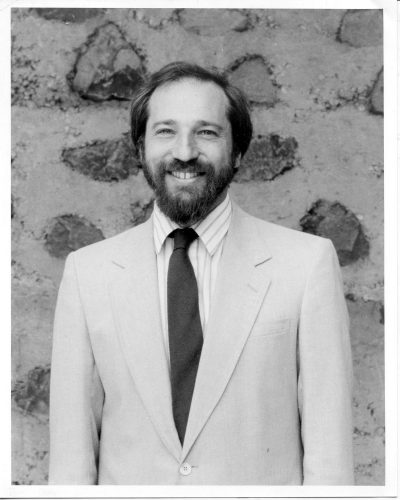
The road home has its familiar signposts and sometimes a few surprises. Always, it has memories.
This week, though, the road home for Rabbi Yitzhak Husbands-Hankin is for teaching, contemplation and yearning for healing and grace while dealing with anger. He left Tuesday for Pittsburgh, Pennsylvania, the Squirrel Hill neighborhood and the Tree of Life Synagogue.
“Healing from the trauma in Pittsburgh will be a long time coming,” Husbands-Hankin says.
Retired as the leader of Eugene’s Temple Beth Israel, Husbands-Hankin was visiting his native Pittsburgh on Oct. 27, 2018, along with his wife, Shonna Husbands-Hankin.
At Sabbath services that Saturday morning, a gunman entered the Tree of Life Synagogue and yelled, “All Jews must die!” He was armed with an assault rifle and handguns. He opened fire, killing 11 congregants and wounding six others, including four police officers.
One of the wounded was Daniel Leger, a “dear friend” and “a very special man,” Husbands-Hankin says. Leger, a lay leader in the local Jewish community who had served as a hospital chaplain and a pediatric hospice nurse, was shot in the chest and underwent multiple surgeries.
Leger survived, and talks by Skype with Husbands-Hankin almost weekly. He is starting to engage again in the community, but Husbands-Hankin notes that his friend, a “robust man physically” before the shooting, is now “significantly impaired and weakened.”
Husbands-Hankin was due to be at the synagogue, but he had overslept. When he received the call from Leger’s wife, Husbands-Hankin rushed to the perimeter of the synagogue and waited.
He describes the events as “shocking, disorienting and confusing.” Even now, a year later, the rabbi finds it difficult to articulate all the thoughts and emotions that swirled in the moment and the days and weeks afterward.
Husbands-Hankin calls out the white nationalists and the language they foster all the way to the present federal administration. “They are the terrorists,” he says.
He also decries the “absolutely out-of-control” weaponry and ammunition that has long flooded the country’s marketplace. “It has to be stopped,” he declares. “There should be no place for that in our society.”
Yet the atrocity in Pittsburgh has repeated itself. A shooter attacked a Los Angeles synagogue late in 2018, and in April of this year — at the Chabad of Poway Synagogue in Poway, California — a gunman killed one congregant and wounded three others, including the rabbi of the synagogue.
Globally, too, synagogues have been under attack. Earlier this month, on Yom Kippur, a gunman killed two and wounded two others in Halle, Germany. It could have been worse if not for the security measures that synagogue took, measures that now are standard policies for synagogues.
“I feel it’s wise,” Husbands-Hankin says of the security. “There are people out there who hate Jewish people. They say so.”
Husbands-Hankin points out that another possible trigger for the shooter in Pittsburgh was the synagogue’s efforts to help immigrants and their families through the Hebrew Immigrant Aid Society, a nonprofit more than a century old that provides humanitarian aid and assistance to refugees.
“There was a combination of hatred there,” Husbands-Hankin says.
Yet the week ahead for the Tree of Life Synagogue is for contemplation. On its website, Tree of Life is designating Oct. 27 as “A commemorative day of service, study and community.”
Husbands-Hankin will be there for the same reason.
“I’ll be back to be present with Daniel and others,” he says.
This story has been updated.